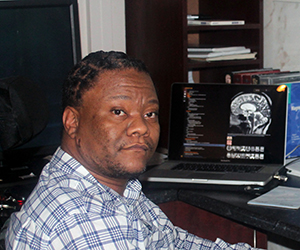Latest News Archive
Please select Category, Year, and then Month to display items
09 December 2020
|
Story UFS entral academic advising team
|
Photo Pixabay

It wasn’t easy, but we all got to this point because we stayed calm and made the effort to learn on even when it was difficult.
The University of the Free State (UFS) has remained committed to supporting you in every way possible, and as you prepare for the final assessments, remember to access the support tools you will need in order to successfully complete the 2020 academic year: https://www.ufs.ac.za/toolsforsuccess
Main exams are running from 30 November to 19 December 2020
All of the best, and break a pen in your upcoming final assessments. For those of you who will be graduating, we cannot wait to see you in that graduation attire; and those who still have some way to go, we cannot wait to serve you again in 2021 as we continue the pursuit of academic success!
Below are five main study tips that you can use for final assessment success:
1. Set a realistic study schedule
You might think that studying for eight hours straight for four days before the exam, will help you get through the work in time. See final edition of the #UFSLearnOn for more information.
2. Structure and organise your work
If your notes are organised, it is also easier for your brain to recall information, even when you become nervous during exams.
3. Practise with an old exam/semester test paper
Practice makes perfect, and although the final assessments might look different in how they are administered, it will still help to practise using old tests and exams.
4. Adapt your strategies to the content
What works for one module or even one learning outcome, might not be effective for another. You need to continually adapt your note-taking and study approaches. See #UFSLearnOn final edition for different study methods.
5. Healthy body, healthy mind
Your brain needs optimal care to perform at its best, and getting physically active (even if it is by jumping in one spot if space is limited) forces your body to release neurotransmitters responsible for positive emotions, which assist in retaining information in your memory …
Download the final edition of #UFSLearnOn that points you towards the resources you’ll need to ace your final assessments and end 2020 off on a high note!
Quadriplegic doctor obtains degree against all odds
2016-11-25

Dr Swartbooi faces each day with vigour and
resilience. Dr Swartbooi analyses images on
a screen in the Clinical Imaging Laboratory
at Universitas Academic Hospital.
Photo: Oteng Mpete
Life’s defining moments are when perseverance is rewarded. It is not easy to swim against the tide. However, for Dr Ambrotius Swartbooi from the University of the Free State’s Department of Clinical Imaging Sciences, it became his moment of glory. In 2006, Dr Swartbooi suffered a spinal injury from a near-fatal car accident which left him paralysed and a quadriplegic.
The strength to carry on
“You have one of two choices:
to lie down and give up,
or to pick yourself up”
—Dr Swartbooi
Dr Swartbooi spent close to six months, recovering from his injuries. “You have one of two choices: to lie down and give up or to pick yourself up,” said Dr Swartbooi. He would inspire other patients with similar injuries to reintegrate into society despite their new-found circumstances.
Fortunately, not all was doom and gloom; in 2007 Dr Swartbooi got married, and his wife has supported and inspired him to continue pursuing his dreams. Dr Swartbooi completed his undergraduate medical degree at the UFS, and in 2014 decided it was time to complete his studies and pursued an MMed specialising in Diagnostic Radiology.
To treat or not treat: that is the question
After all his trials and tribulations, Dr Swartbooi will be receiving his MMed Diagnostic Radiology degree at the UFS Summer Graduation ceremony in December 2016. His research focuses on intracranial aneurysm size interventions. He discovered that there were discrepancies between international standards for intervention and African standards for intervention.
The research inspects what should be treated and how it should be treated. He found there was a gap in African literature into the size of aneurysms.
Champion of survival: Where to from here?
“That’s a good question,” said Dr Swartbooi. “Slowly from here. I still need to work on getting my full accreditation from the Health Professions Council of South Africa (HPCSA).” He plans to continue fuelling his passion for teaching. “There is no place better to teach than at an academic hospital.”
Dr Swartbooi commended the efforts of the Centre for Universal Access and Disability Support (CUADS), which assisted him in writing all his exams. “I want to be able to make a fulfilling and lasting impact on people but also to give the best medical service that I can,” concluded Dr Swartbooi.